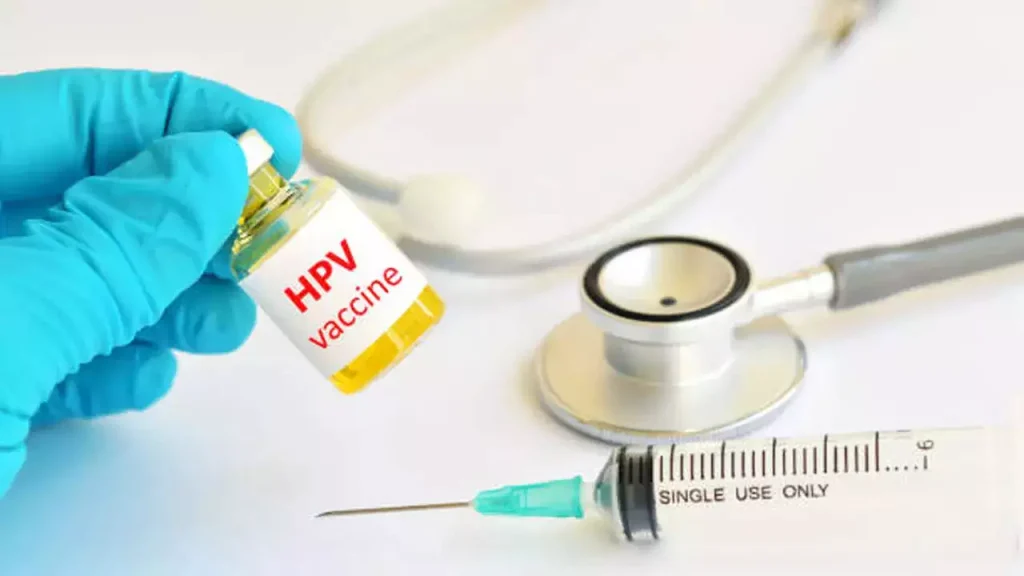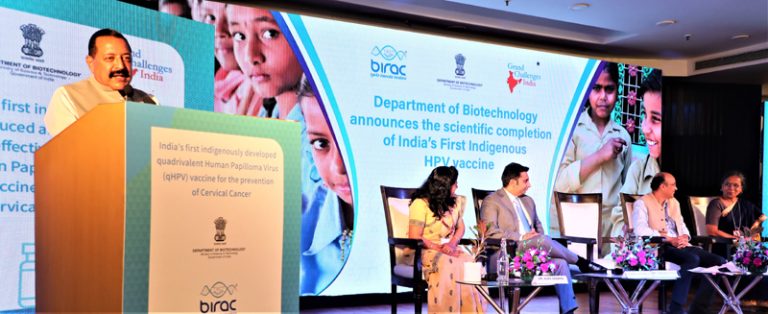The scientific completion of Cervavac, India’s first locally developed quadrivalent human papillomavirus (qHPV) vaccine for the prevention of cervical cancer, was announced by Union Minister of Science and Technology Dr. Jitendra Singh on Thursday.

Cervical cancer is the fourth most prevalent cancer in women worldwide, despite being generally avoidable, according to the WHO. An estimated 570,00 women were diagnosed with the illness in 2018, and it was responsible for 311,000 fatalities worldwide.
The vaccine will be released later this year, according to Dr. Rajesh Gokhale, Secretary of the Indian government’s Department of Biotechnology and Chairperson of the Biotechnology Industry Research Assistance Council (BIRAC). In an interview, he stated, “According to suggestions from Serum Institute of India, the cost will approximate between Rs 200 and 400.”
With 1.23 lakh instances and over 67,000 fatalities per year, India is responsible for almost a fifth of the world’s cervical cancer cases.
Human papillomavirus (HPV), a widespread virus that is spread through intercourse, is linked to almost all cases of cervical cancer. According to the Centers for Disease Control and Prevention, the body’s immune system often clears the HPV infection spontaneously within two years, but in a tiny proportion of people, the virus can remain over time and transform some normal cells into abnormal cells and eventually cancer (CDC).
Cervical cancer can be prevented if discovered early and treated efficiently, yet it kills one woman in India every eight minutes, according to Dr. Smita Joshi, the principal investigator for Serum Institute of India’s HPV vaccine research.
“There are two effective methods for avoiding cervical cancer: screening and immunisation. Less than 10% of Indian women are screened, and there is still a lack of knowledge among women regarding the prevention of this illness. Even if they don’t have any symptoms, all women between the ages of 30 and 49 need to get screened for cervical cancer, and their teenage daughters need to get the HPV vaccine, according to Dr. Joshi.
The Serum Institute of India, located in Pune, developed Cervavac in collaboration with the Department of Biotechnology of the Indian Government (DBT). In 2011, Dr. M. K. Bhan, who was the DBT’s secretary at the time, carried out the effort to produce the vaccine. Since then, 30 scientific advisory group meetings and site visits by DBT have assisted in reviewing the scientific merit of the entire process of vaccine development.
On July 12 of this year, the Drug Controller General of India approved Cervavac’s market authorization.
According to Dr. Rajesh Gokhale, HPV vaccines are offered in two doses, and research has shown that the antibodies that form after both are given can last up to six or seven years. According to him, the cervical cancer vaccination may not need booster shots like Covid vaccines do.
The largest challenge will be assigning enough funds and personnel to vaccinate the vast majority of adolescent girls between the ages of 9 and 15, so that they are protected from HPV at a young age.

